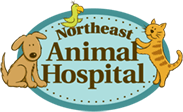In the News: Leptospirosis
.jpg)
According to the American Veterinary Medical Foundation, Leptospirosis is a disease caused by infection with leptospira bacteria. It’s rare, but cats and people can become infected. Infection in humans can result in flu-like symptoms and can cause liver or kidney disease. Most people contract leptospirosis from polluted water when engaging in recreational activities. Infection resulting from contact with an infected pet is possible but much less common.
Dogs are most at risk of becoming infected by swimming or drinking from rivers, lakes, or streams; even walking on ground that has had exposure to potentially infected wildlife; and contact with rodents or other dogs. The reason for this is that their mucous membranes, or any type of wound, could come into contact with infected urine, urine-contaminated soil; through a bite from an infected animal; by eating infected dead animals; and rarely, through breeding. It can also be passed through the placenta from the mother dog to the puppies.
The AVMF cautions that the signs of lepto in dogs vary. Some infected dogs do not show any signs of illness, some have a mild and transient illness and recover spontaneously, while others develop severe illness and death.
Signs of lepto may include fever, shivering, muscles that are tender to the touch, lethargy, increased thirst, changes in the frequency or amount of urination, vomiting, diarrhea, loss of appetite, jaundice, and difficulty breathing. Affected dogs can also develop bleeding disorders and fluid accumulation resulting in swollen legs, chest, or abdomen.
Leptospirosis is diagnosed by a physical examination, and other tests such as blood tests, urine tests, x-rays, and ultrasounds. This disease is generally treated with antibiotics and supportive care. When caught early and treated aggressively, the chances for recovery are good, though the risk of permanent kidney or liver damage remains. Annual vaccination is recommended for at-risk dogs.
